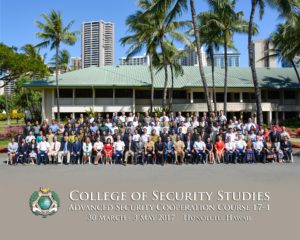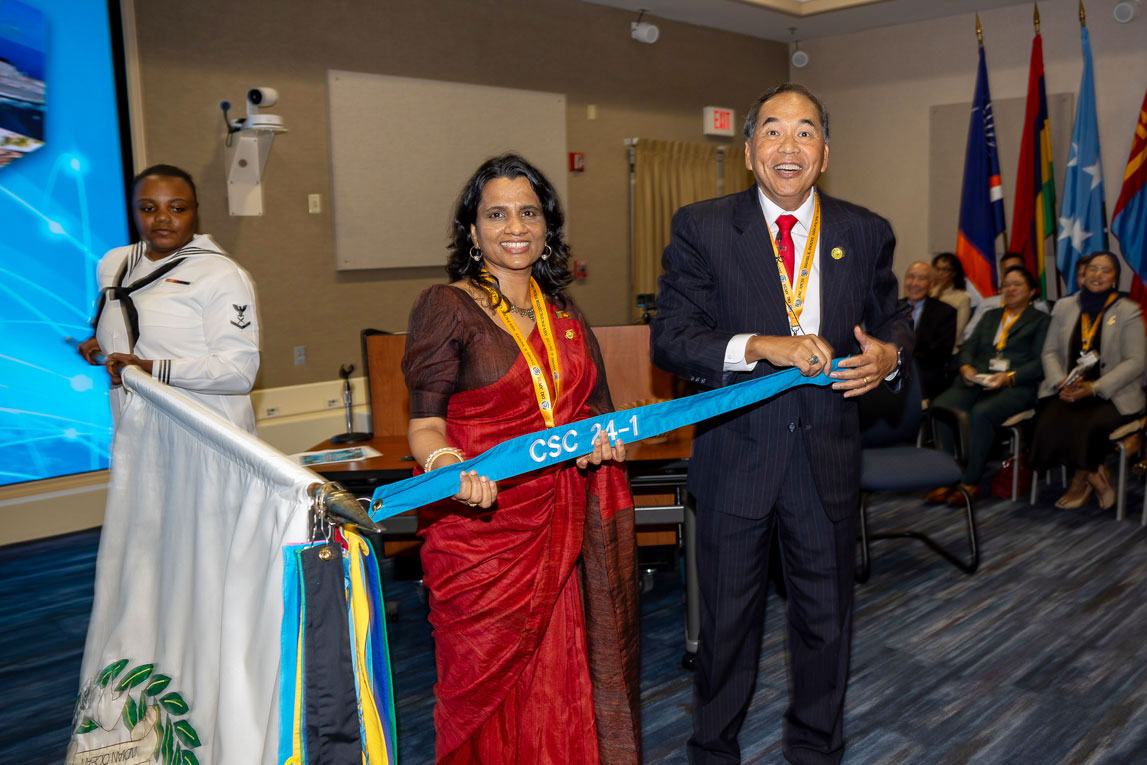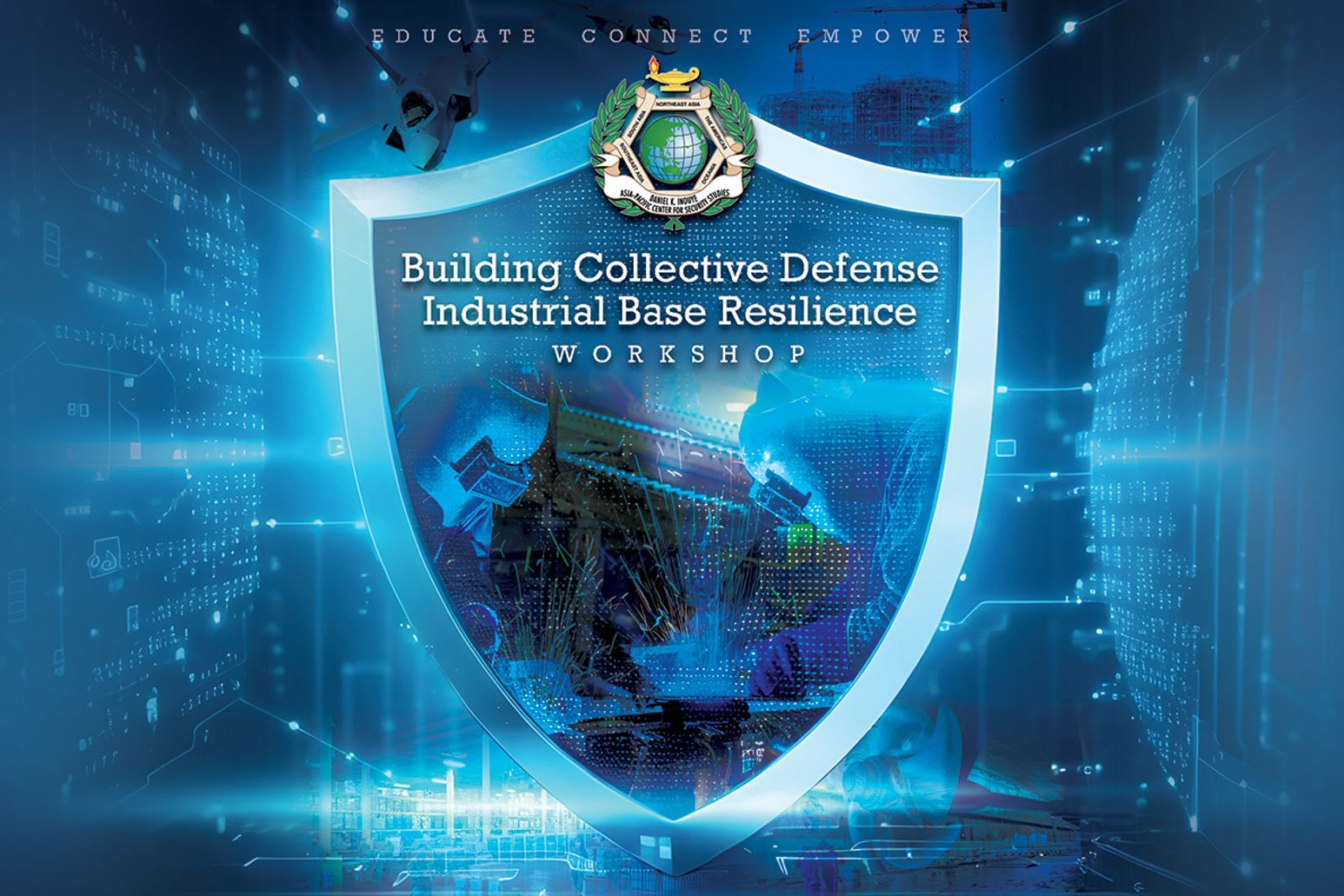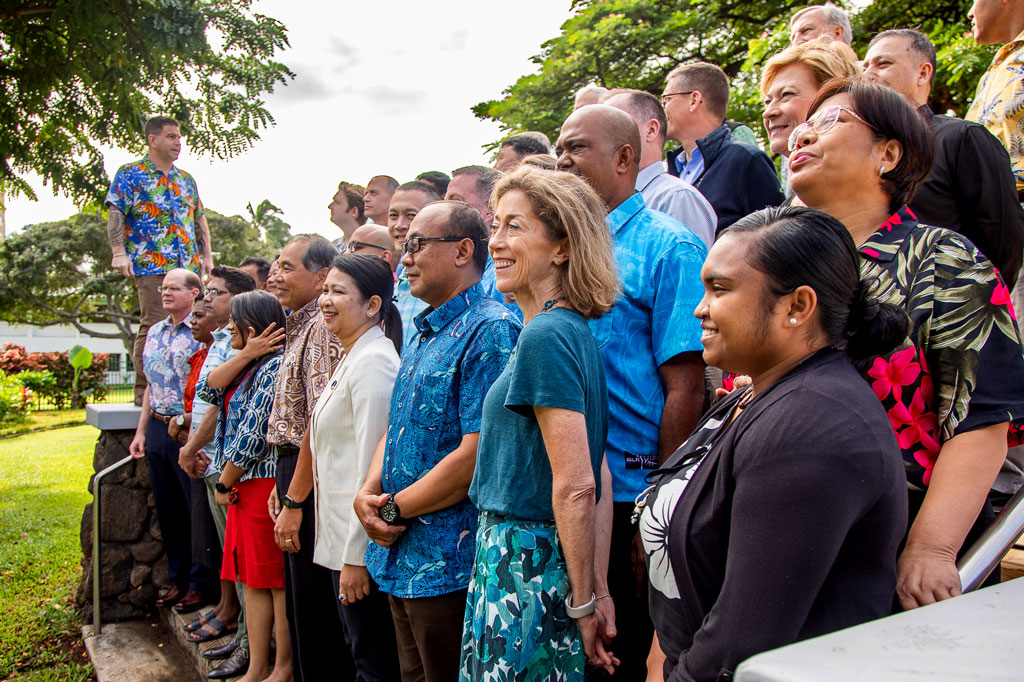The Advanced Security Cooperation Course (ASC17-1) concluded today with 109 Fellows from 41 locations around the world. The flagship course for the Daniel K. Inouye Asia-Pacific Center for Security Studies began on March 30 and concluded May 3, 2017.
The five-week ASC is an executive education program enabling mid-level military and civilian leaders to deepen their understanding of security issues within political, socio-economic, defense and environmental contexts. The course’s primary intent, according to course manager Dr. Virginia Bacay Watson, is to help “Fellows develop a common understanding of the security threats and challenges in the region and to find ways to enhance networks of cooperation.”
“[It] has been a rather exciting, fulfilling, very interesting, and very important five-week dialogue of advanced security cooperation,” said Ms. Elsie Fukofuka, a senior assistant secretary in the Ministry of Foreign Affairs, Kingdom of Tonga. “Before I came to Hawaii…I associated security with ‘hard’ issues: military, war, and nuclear proliferation. So I was genuinely pleased when I arrived to find that this course encompasses wider security issues that relate to our Asia-Pacific region included non-traditional security threats such as transnational crime, economic and maritime security, and the single most important security threat to the pacific islands: climate change. This is crucial because these affect each of our countries.”
Participants hailed from Australia, Bangladesh, Bhutan, Cambodia, Canada, Chile, China, Colombia, Cook Islands, India, Indonesia, Japan, Laos, Malaysia, Maldives, Mongolia, Myanmar, Nepal, New Zealand, Niue, Pakistan, Palau, Panama, Papua-New Guinea, Peru, Philippines, Republic of Korea, Samoa, Singapore, Solomon Islands, Sri Lanka, Taiwan, Thailand, Timor-Leste, Tonga, United States, Vanuatu, and Vietnam.
Fellows were a combination of military (44%), Police (8%) and civilian government officials (48%). Thirty percent of the Fellows were women. The Civilians were employed by ministries of defense, foreign affairs, interior, immigration, health, justice, gender equity & women’s development, executive branch, and National Security Council. International organizations present included South Asian Association for Regional Cooperation (SAARC).
Four Fellows were members of the legislature (India), media (Bhutan) and NGOs (Maldives and Pakistan) who participated in the course as part of the State Department’s SEAS program.
The course culminated in the presentation of the Fellows Projects. This course had the ten projects that were related to Women, Peace, and Security including several focused on building national actions plans for WPS.
In a commencement address, Fukofuka said: “We all know… as members of this interconnected global community… Ultimately, my security issue is yours and your security issue is mine. We all, as diverse and wide spread as we are, brought here to understand these complex issues. Hopefully in the bonds we shared, and the discussions we’ve had in the auditorium or seminar rooms, we all go back with a greater appreciation and understanding of our neighbors and our wider Asia-Pacific region. This will fuel our drive to work together to achieve common goals and tackle common challenges.”
ASC is one of six formal courses at DKI APCSS. The Center is a Department of Defense institute that addresses regional and global security issues. Military and civilian representatives, most from the United States and Asia-Pacific nations, participate in a comprehensive program of executive education, professional exchanges and outreach events, both in Hawaii and throughout the Asia-Pacific region.
The Center supports U.S. Pacific Command by developing and sustaining relationships among security practitioners and national security establishments throughout the region. DKI APCSS’ mission is to build capacities and communities of interest by educating, connecting and empowering security practitioners to advance Asia-Pacific security. It is one of the Department of Defense’s five regional security studies centers.
Since opening in 1995, nearly 11,000 alumni representing over 122 countries and territories have attended DKI APCSS courses and workshops.
-END-











Leave A Comment